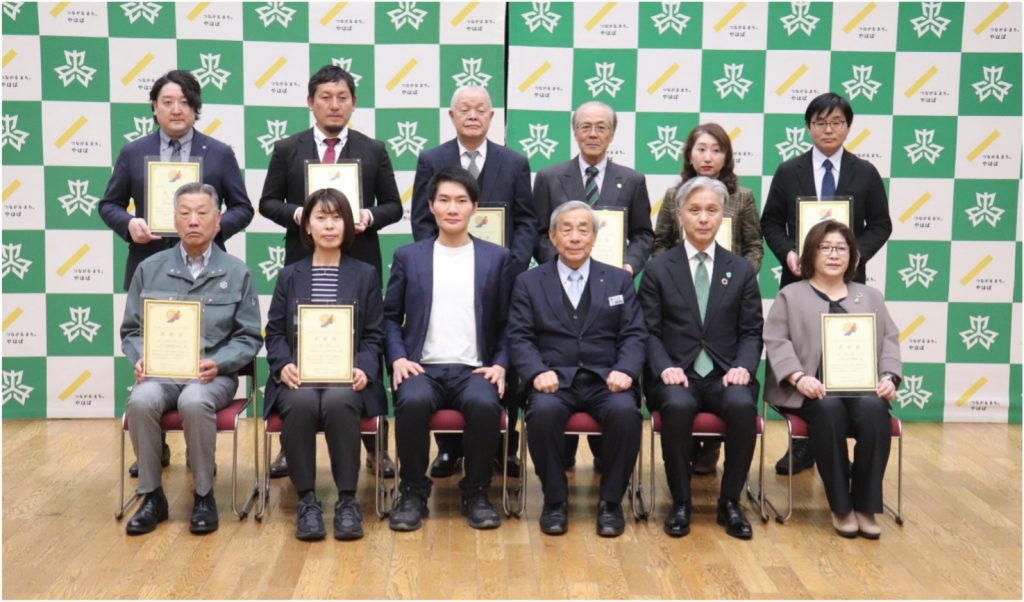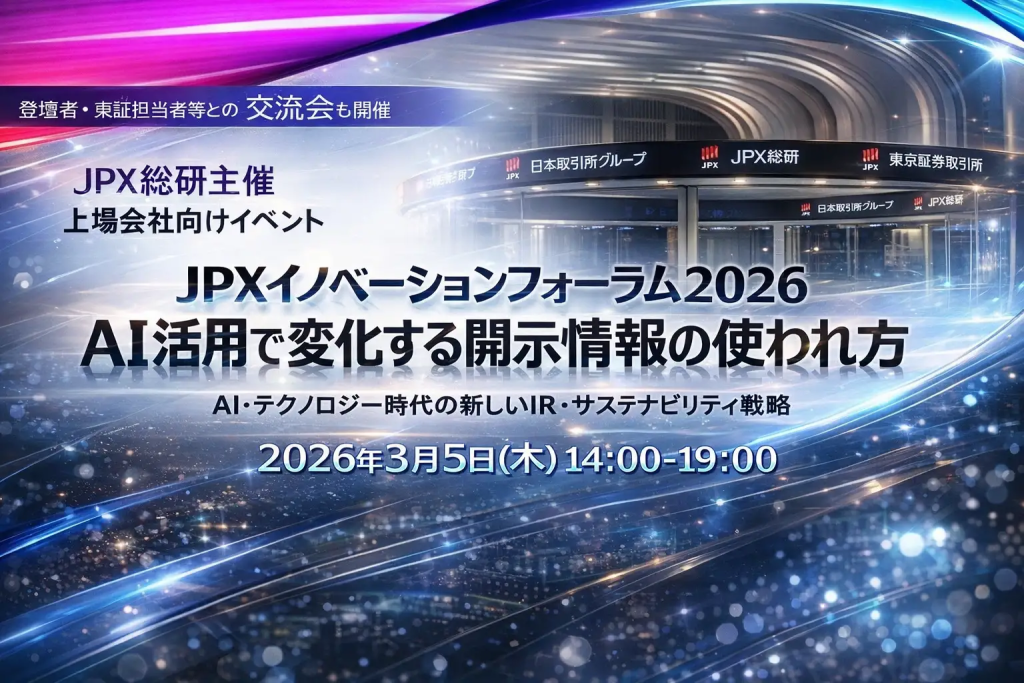【4/18〜4/24】のESG関連ニュースをまとめてお届けします。
スターバックス、サステナブルな「グリーンストア」への取り組みを拡大
(2023/4/18)
- コーヒーチェーンのスターバックスは、サステナビリティ目標として掲げている、環境に配慮した「グリーンストア」への取り組みを拡大している。最近発表された「グリーンストア」イニシアティブにより、全世界の3,500以上の店舗が「グリーンストア」として認定された。
- この認証プロセスでは、店舗は25の基準を満たすことを求められる。エネルギー効率、水管理、再生可能エネルギー、廃棄物転換など、様々な環境影響指標において店舗のパフォーマンスが評価される。
- スターバックスは、すでに年間約6000万ドルの運営コストを削減しており、2025年までに、全世界で10,000店舗の「グリーンストア」を目指している。この取り組みを通じて、2030年までに二酸化炭素排出量、水使用量、埋立廃棄物を50%削減するというサステナビリティ目標を達成しようとしている。また、アジア太平洋地域やヨーロッパ、中東、アフリカなどの新しい市場でもプログラムを拡大する予定である。今後、日本企業も環境に配慮したビジネスモデルの構築を求められる中、「グリーンストア」のような認証プログラムを行うことで、環境問題に貢献し顧客からの支持を得ることができるだろう。
WWFシンガポール報告書:アジアのファンドマネージャーはESGリスクへの対応に大きく遅れをとっている
(2023/4/19)
- 世界自然保護基金シンガポールの報告書によると、アジアのファンドマネージャーは、環境・社会・ガバナンス(ESG)リスクへの対応という点で、ヨーロッパのファンドマネージャーに遅れをとっている。
- 報告書によると、アジアの運用会社は、自然関連リスクへの対応と、責任投資行動とガバナンスの開示や自然関連リスクに関するガイドラインの作成が特に不足していることがわかった。また、水リスクの管理、海洋の保護、森林破壊の終結といった課題において、投資先企業に対する投資方針に期待を持てるアジアの資産運用会社は皆無であるとしている。
- さらに、自然関連リスクを認識している資産運用会社は、ヨーロッパの資産運用会社の73%に対し、アジアの資産運用会社はわずか3分の1だった。また、アジア企業は、ポートフォリオ・マネージャー、取締役、取締役会メンバーに対するガバナンスの監視とパフォーマンスのインセンティブにおいても遅れをとっている。アジアの資産運用会社18社のうち、上級管理職やポートフォリオ・マネージャーの報酬とESGパフォーマンスを直接結びつけているのは1社のみである。
- アジア太平洋地域におけるESG資産が増加する中、自然保護と脱炭素化を推進できる、レジリエントで持続可能なポートフォリオにするためには、さらなる改善が必要と指摘されている。持続可能性の開示やESG要素の統合に関しては、一部のアジア諸国が他国よりも優れた結果を出している。日本は指標や目標の面ですべての国の中で抜きん出ている。
世界の森林破壊を減らし、持続可能性を推進するためのEUの新規制
(2023/4/20)
- EUは、パーム油や大豆油を含む一部の商品に対して、森林破壊を防ぐための新しい規制を発表した。この規制は、森林破壊や森林劣化が進んでいる土地から、製品を調達していないことを確認できる、デューデリジェンス声明書の発行を求めている。
- 2021年11月に提案されたこの規則は、より厳しい内容に更新され、ゴム、木炭、印刷紙製品、一部のパーム油誘導体などの商品を対象にしている。この新しい規制では、国や地域をリスクレベル別に分類し、リスクの低い地域の製品については、デューディリジェンスのプロセスを簡略化することが可能ですが、リスクの高い地域ではより厳密なチェックが求められる。
- EU当局は、製品の産地を特定するために衛星モニタリングとDNA分析を使用している。この規制には罰則が盛り込まれており、違反した場合の罰則金額は、事業者またはその取引業者のEUにおける年間売上高の最大4%に達する可能性がある。この規制の目的は、森林、土地、農業分野において、バリューチェーンを持つ企業に起因する温室効果ガスの排出量を削減することにある。これらの企業は世界の排出量の22%を占め、森林破壊の原因の半分以上を作り出している。
投資家がプラスチック汚染リスクの透明性向上を要求、CDPが新レポートモジュールで対応
(2023/4/20)
- 気候調査プロバイダーであり、環境情報開示プラットフォームであるCDPは、企業がプラスチック関連の影響を開示できる新しいレポート機能の公開を発表した。これは、プラスチック関連のリスクとエクスポージャーに関するより多くの情報を求める投資家の要望に応えるもので、136兆ドルの資産を保有する740以上の投資家がこうした情報開示を求めている。
- プラスチック報告に対する要求は、石油化学やプラスチックへの投資が座礁資産となるリスクなど、企業や投資家がプラスチック汚染で直面する財務、法律、規制、風評、物理、技術的リスクの増大が背景にある。CDPの「水の安全保障」アンケートに含まれるこの新しいモジュールは、プラスチックのマッピング、潜在的な環境影響、ビジネスリスク、ターゲットなどを取り上げている。また、このモジュールには、特定のプラスチックの生産・消費活動を行う企業向けに、総重量、原材料の含有量、循環の可能性についての質問が含まれている。
- プラスチック関連の影響について、開示を求められる業種は化学、ファッション・アパレル、食品・飲料、化石燃料、包装で約7,000社が含まれている。各国政府が廃棄物処理費用の負担を企業に求め、プラスチック汚染削減のための規制を導入する傾向が強まる中、CDPがプラスチック関連の報告をプラットフォームに組み込む今回の動きは、投資家やその他のステークホルダーが企業のプラスチックリスクやエクスポージャーをより深く理解するのに有用である。企業にとっても、この新しい報告機能は、プラスチック関連のリスクを軽減し、パフォーマンスを向上させ、評判を高めるための貴重なツールになる。最近、カナダでプラスチック包装やラベルに再生材を使用することを義務付ける新しい規則が提案されたことは、企業がプラスチック関連の影響を開示することの必要性と、プラスチック汚染の危機を解決するための金融業界とサステナビリティ業界の協力の重要性を改めて強調している。
大和ハウス工業がカーボンニュートラルに向かって加速!ICPを活用したCO2削減策に注力
(2023/4/21)
- 大和ハウス工業は、社内の投資用不動産の判断基準に「インターナルカーボンプライシング制度」を導入したことを発表した。この制度は、投資先不動産のCO2削減量による環境価値を、金額換算し内部収益率に反映させるものである。
- これにより、大和ハウス工業は開発・建設する投資用不動産の稼働後のCO2排出量を削減し、建物やまちづくりの脱炭素化をより加速させることを目指す。また、金利上昇が予測される中、IRRの厳格化に対する緩和策として、ICPを活用することで、損失リスクを軽減する取り組みも開始している。
- なお、環境省は令和4年度からICPを用いた投資決定モデル事業を実施し、参加企業は日本航空株式会社、株式会社ユニクロ、株式会社東京ガス、株式会社日本電産に決定した。今後、幅広い業種の企業が、自らの事業や投資で生じるCO2排出量に対して、内部的に価格を見積もって、その価格を経営判断の材料に使うことが増えていくだろう。
セブン&アイ、サプライチェーン企業との協働による脱炭素化の実証実験開始
(2023/4/21)
- セブン&アイ・ホールディングスは「再生可能エネルギーの利活用における小売業サプライチェーン脱炭素化循環モデル事業」を構築し、実証実験を開始すると発表した。この事業では、食品メーカーや物流業者などと連携し、再生可能エネルギーを活用したCO2排出量削減が進められる。
- 同社は、店舗運営に伴うCO2排出量削減に取り組んできており、今回初めてサプライチェーン全体で取り組むこととなる。実証実験では、再生可能エネルギーの利活用を中心に効果を検証する。この実証実験は、東京都および(公財)東京都環境公社が実施する「新エネルギーの推進に係る技術開発支援事業」に採用されたことにより実現した。今後は都内を中心とした検証から、全国に拡大できるように、事業モデルを構築していく予定である。
- 小売業界サプライチェーンのGHG削減において、先進的な取り組みを行っているのは海外のユニリーバやネスレが中心だが、これからは、日本でのその取り組みがどのように拡大していくかが注目されるだろう。
ECBのレビューで、EUの銀行の大半が気候変動報告書の新規制に準備不足であることが判明
(2023/4/21)
- 欧州中央銀行(ECB)は、EUの銀行の気候・環境リスク開示の実践を検証し、過去1年間で報告は改善されたものの、今年発効する規制の開示要件を満たす準備ができている銀行はごくわずかであることを明らかにした。
- このレビューは、ECBの直接監督下にある103の重要な銀行と、各国当局によって監督されているその他の28の機関を対象としている。調査の結果、気候・環境リスクに対する重要なエクスポージャーの開示は、昨年は36%にとどまったのに対し、現在は86%の銀行が行っていることが判明した。しかし、審査対象となった銀行のうち、審査の全項目にわたって「おおむね適切な」開示を行っていると認められたのは、わずか6%でした。ECBは、新基準への不遵守はEU法違反となり、監督上の措置が下されることを銀行に警告している。
- これらの銀行は近いうち、欧州銀行監督機構(European Banking Authority)の実施技術基準(ITS)にあるサステナビリティ関連の報告要件への遵守を迫られている。一部の銀行は、早ければ2023年6月に新ルールに基づいた開示を求められることになる。
三菱重工業、自然共生社会の実現への取り組みを強化。国内企業の生物多様に関する開示の拡大に注目
(2023/4/21)
- 三菱重工業は、自然共生社会の実現を目指し、生物多様性や自然資本の保全・回復に向けた取り組みを推進するため、「三菱重工グループ生物多様性宣言」を策定した。2050年までに自然共生社会を実現することを目指し、グループ内の事業活動が生物多様性や自然資本に依存している部分を把握し、負の影響の低減に努めるとしている。
- 同社は生物多様性の損失を、気候変動と同様に経営の最重要課題の一つとして位置づけ、生物多様性や自然資本の保全に資する社会貢献活動に取り組み、環境教育を通じてグループ全員の意識向上を目指す。
- 生物多様性に関する国内企業の開示事例はまだ少なく、ブリヂストン、積水ハウス、味の素、イオングループなどの、ESG先進企業から取り組みが加速し始めている。
A summary of ESG-related news [18th Apr-24th Apr].
Starbucks Expands Commitment to Sustainable “Green Stores”.
(Apr 18, 2023)
- Coffee chain Starbucks has been expanding its commitment to environmentally friendly “Greener Stores” as part of its sustainability goals. Through its recently announced Greener Store initiative, more than 3,500 stores worldwide have been certified as “Greener Stores”.
- The certification process requires stores to meet 25 criteria. Store performance is evaluated on a variety of environmental impact indicators, including energy efficiency, water management, renewable energy, and waste diversion.
- Starbucks has already saved about $60 million a year in operating costs and aims to have 10,000 “green stores” worldwide by 2025. Through this initiative, Starbucks aims to contribute toward sustainability goals, including a 50% reduction in carbon emissions, water use, and landfill waste by 2030. The program will also be expanded in new markets such as Asia Pacific, Europe, the Middle East, and Africa. In the future, Japanese companies will be required to establish environmentally friendly business models, while certification programs such as “Green Stores” could contribute to environmental issues and gain the support of customers.
WWF Singapore Report: Asian asset managers lag far behind on ESG risks.
(Apr 19, 2023)
- According to a report by the World Wildlife Fund Singapore, Asian asset managers lag behind their European counterparts on environmental, social and governance (ESG) risks.
- The report found that Asian asset managers are particularly lacking in addressing nature-related risks, disclosing responsible investment behavior and governance, and developing guidelines on nature-related risks. The report also states that none of the Asian asset managers have high expectations for their investment policies toward their investee companies in issues such as managing water risk, protecting the oceans, and ending deforestation.
- Furthermore, only one-third of Asian asset firms were conscious of nature-related risks, compared to 73% of European asset firms. Asian companies also lag behind in governance monitoring and performance incentives for portfolio managers, directors, and board membersOnly one of the 18 Asian asset firms directly links senior management and portfolio manager compensation to ESG performance.
- As ESG assets increase in the Asia-Pacific region, the report notes that further improvements are needed for a resilient and sustainable portfolio that can promote nature conservation and decarbonization. Some Asian countries are doing better than others on sustainability disclosure and integration of ESG factors. Japan leads among all countries in terms of indicators and targets.
New EU regulations to reduce global deforestation and promote sustainability.
(Apr 20, 2023)
- The EU has announced new regulations to prevent deforestation for certain commodities, which include palm oil and soybean oil. The regulation requires the issuance of a due diligence statement confirming that products are not sourced from lands undergoing deforestation or forest degradation.
- The regulations, proposed in November 2021, have been updated to be more stringent and cover commodities such as rubber, charcoal, printed paper products, and some palm oil derivatives. The new regulation classifies countries and regions by risk level, allowing for a simplified due diligence process for products in low-risk regions, but requiring more rigorous checks in high-risk regions.
- EU authorities use satellite monitoring and DNA analysis to determine the origin of products. The regulation includes penalties, and the penalty amount for non-compliance can reach up to 4% of the annual sales in the EU of a company or its traders. The aim of the regulation is to reduce greenhouse gas emissions from companies with value chains in the forest, land, and agriculture sectors. These companies account for 22% of global emissions and create more than half of the causes of deforestation.
Investors Demand Greater Transparency on Plastic Contamination Risks; CDP Responds with New Reporting Module.
(Apr 20, 2023)
- CDP, a climate research provider and environmental disclosure platform, announced the launch of a new reporting feature that allows companies to disclose their plastics-related impacts. This is in response to investor demand for more information on plastics-related risks and exposures, as more than 740 investors with $136 trillion in assets have requested such disclosure.
- The requirement for additional plastics reporting is in response to the growing financial, legal, regulatory, reputational, physical, and technical risks that companies and investors face with plastics pollution, such as the risk of petrochemical and plastics investments becoming stranded assets. This new module, included in CDP’s “Water Security” questionnaire, covers plastics mapping, potential environmental impacts, business risks, and targets. The module also includes questions on total weight, raw material content, and recycling potential for companies with specific plastic production and consumption activities.
- The sectors required to disclose plastics-related impacts include about 7,000 companies in chemicals, fashion and apparel, food and beverages, fossil fuels, and packaging. With governments increasingly requiring companies to bear the cost of waste disposal and introducing regulations to reduce plastic pollution, this move by CDP to incorporate plastics-related reporting into its platform will help investors and other stakeholders better understand a company’s plastics risk and exposure.For companies, the new reporting module will be a valuable tool to mitigate plastics-related risks, improve performance, and enhance reputation. Canada’s recent proposal for new regulations requiring the use of recycled materials in plastic packaging and labels further underscores the need for companies to disclose their plastic-related impacts and the importance of cooperation between the financial and sustainability industries to solve the plastic pollution crisis.
Daiwa House Industry Co., Ltd. accelerates toward carbon neutrality! Focusing on CO2 Reduction Measures Using ICP.
(Apr 21, 2023)
- Daiwa House Industry Co., Ltd. announced that it has introduced the “Internal Carbon Pricing System” as a criterion for judging investment properties within the company. Under this system, the environmental value of an investment property based on the amount of CO2 reduction is converted into a monetary value and reflected in the internal rate of return.
- Through this initiative, Daiwa House Industry aims to reduce CO2 emissions from the investment properties it develops and constructs, and to further accelerate the decarbonization of buildings and urban development. In addition, the company has begun to use ICPs to mitigate the risk of loss as a mitigation measure against stricter IRRs while interest rates are expected to rise.
- The Ministry of the Environment has been implementing a model project for investment decisions using ICP since FY2022, and participating companies have been selected as Japan Airlines Corporation, UNIQLO, Tokyo Gas, and Nidec Corporation. In the future, companies in a wide range of industries will increasingly estimate the internal price of CO2 emissions generated by their own operations and investments and use that price as a criterion for business decisions.
Seven & i begins a decarbonization demonstration experiment in collaboration with supply chain companies.
(Apr 21, 2023)
- Seven & i Holdings Co., Ltd. announced that it will establish the “Retail Supply Chain Decarbonization Circulation Model Project in the Use of Renewable Energy” and begin demonstration experiments. Under this project, the company will work with food product manufacturers and logistics providers to reduce CO2 emissions through the use of renewable energy.
- The company has been working to reduce CO2 emissions from store operations, and this is the first time it will address this issue for the entire supply chain. The demonstration experiment will focus on the use of renewable energy sources. This demonstration experiment was made possible through the Tokyo Metropolitan Government and the Tokyo Environmental Public Service Corporation’s “Technology Development Support Project for the Promotion of New Energy. Starting with the verification centered on the Tokyo area, the project model will be developed so that it can be expanded to the rest of Japan.
- While Unilever and Nestlé overseas have been the leading players in GHG reduction in the retail industry supply chain, it will be of interest to see how such efforts will be expanded in Japan.
ECB Review Finds Most EU Banks Unprepared for New Climate Change Reporting Regulations.
(Apr 21, 2023)
- The European Central Bank (ECB) has examined the climate and environmental risk disclosure practices of EU banks and found that while reporting has improved over the past year, very few banks are ready to meet the disclosure requirements of regulations that will take effect this year.
- The review covered 103 important banks directly supervised by the ECB and 28 other institutions supervised by national authorities. The survey found that 86% of banks are now disclosing material exposures for climate and environmental risks, compared to only 36% last year. However, only 6% of the banks examined were found to have “generally adequate” disclosures across the full range of examinations. The ECB has warned the banks that non-compliance with the new standards is a violation of EU law and will result in supervisory action.
- These banks will soon be forced to comply with sustainability-related reporting requirements in the European Banking Authority’s Implementing Technical Standards (ITS). A few banks will be required to make disclosures under the new rules as early as June 2023.
Mitsubishi Heavy Industries, Ltd. strengthens its efforts to realize a society in harmony with nature. Watch for Increasing Disclosure on Biodiversity by Japanese Companies.
(Apr 21, 2023)
- Mitsubishi Heavy Industries, Ltd. (MHI) has formulated the “MHI Group Biodiversity Declaration” to promote efforts to conserve and restore biodiversity and natural capital, with the aim of realizing a society in harmony with nature. In order to realize a society in harmony with nature by 2050, the Group will identify where its business activities depend on biodiversity and natural capital, and strive to reduce negative impacts.
- The company regards biodiversity loss as one of the most important management issues, as well as climate change, and is committed to social contribution activities that contribute to the preservation of biodiversity and natural capital. Furthermore, the company aims to raise the awareness of all group members through environmental education.
- While there are still few examples of Japanese companies disclosing information on biodiversity, initiatives are beginning to accelerate from leading ESG companies such as Bridgestone, Sekisui House, Ajinomoto, and the Aeon Group.






